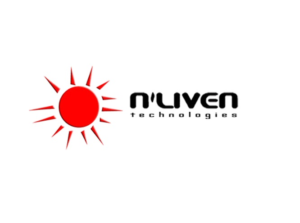A Important Information For College CIOs And IT Administrators
In at this time’s dynamic academic panorama, a sturdy Studying Administration System (LMS) is greater than only a platform—it is the digital spine of your establishment’s educational mission. For increased schooling institutes, the choice to spend money on a custom-built LMS is a big one, promising tailor-made options to fulfill distinctive wants. Nonetheless, this path requires cautious consideration and strategic planning. This guidelines outlines ten important questions that college CIOs and IT administrators should deal with earlier than commissioning a {custom} LMS growth venture. By thoughtfully evaluating these areas, you’ll be able to be certain that your funding aligns together with your establishment’s targets, addresses key challenges, and in the end enhances the training expertise to your college students and school.
The Case For Customized LMS In Increased Schooling
Whereas off-the-shelf LMS options supply a broad vary of options, many establishments discover that their particular pedagogical approaches, integration necessities, and compliance wants necessitate a extra tailor-made method. A custom-built LMS presents the distinctive benefit of being designed exactly to your establishment’s educational framework, administrative processes, and scholar necessities. This stage of customization can result in enhanced Consumer Expertise, seamless integration with present programs, stronger information safety, and long-term price effectivity.
Navigating Key Concerns For Your Customized LMS
Earlier than embarking on a {custom} LMS growth venture, it’s important to have interaction in a radical exploration of a number of key areas. Firstly, take into account how the {custom} LMS will align together with your establishment’s distinctive pedagogical wants and educational targets. It is essential to evaluate whether or not the proposed resolution can adequately help your particular educating methodologies, akin to competency-based studying or blended studying fashions.
The system also needs to be able to accommodating specialised instruments or options required by totally different departments or packages, for instance, digital labs or built-in proctoring software program. In the end, the intention is to make sure the LMS will improve the training expertise to your numerous scholar inhabitants and contribute to improved studying outcomes.
Scalability is one other important issue. The {custom} LMS have to be designed to accommodate future progress in scholar enrollment and an growth in fact choices. It is vital to query whether or not the platform can deal with rising person masses and information volumes with no degradation in efficiency. Moreover, the system’s structure must be versatile sufficient to include new options and combine rising academic applied sciences, akin to Synthetic Intelligence (AI) or Digital Actuality/Augmented Actuality (VR/AR), within the years to return.
Integration capabilities together with your present campus programs are paramount. This consists of seamless information change with the Scholar Info System (SIS) for very important scholar information, enrollment information, and grading processes. The {custom} LMS ought to ideally additionally combine together with your Buyer Relationship Administration (CRM) system to help scholar recruitment and engagement initiatives. The provision of sturdy APIs can also be a key consideration for facilitating future integrations with different important campus applied sciences.
Information safety, privateness, and regulatory compliance are nonnegotiable facets. The {custom} LMS have to be constructed to make sure sturdy safety of delicate info and cling to US rules such because the Household Instructional Rights and Privateness Act (FERPA) and the People with Disabilities Act (ADA). Particularly, the platform should comply with FERPA tips for safeguarding scholar academic information and meet ADA necessities to make sure accessibility for all customers, together with these with disabilities. Inquire concerning the safety protocols and encryption strategies that will likely be carried out to safeguard scholar and institutional information.
The extent of customization potential is a big benefit of a {custom} LMS. Consider how the platform could be tailor-made to mirror your establishment’s distinctive identification, branding tips, and Consumer Interface preferences. The Consumer Interface must be intuitive and user-friendly for each college and college students to encourage adoption and efficient use. Moreover, the power to tailor workflows to match your present educational and administrative processes can result in higher effectivity.
Understanding the full price of possession (TCO) is essential for monetary planning. This consists of not simply the preliminary growth and implementation prices, but in addition ongoing upkeep, technical help, and potential future upgrades. Get hold of readability on the up-front growth prices and the estimated timeline for completion. It is also vital to know the recurring prices for upkeep and help and the way the long-term TCO compares to the licensing charges of off-the-shelf options.
A transparent growth timeline and a sensible evaluation of required sources are important for venture success. Perceive the estimated time-frame for every section of the event course of: planning, design, growth, testing, and deployment. Assess what inner IT experience and sources will likely be essential for the venture. If you’re partnering with exterior builders, completely vet their expertise in growing LMS platforms particularly for increased schooling establishments.
Think about who will likely be accountable for the continued upkeep, technical help, safety updates, and future enhancements of the {custom} LMS. Decide whether or not your inner IT staff will deal with these tasks or if you’ll depend on the event associate postlaunch. Make clear what service stage agreements (SLAs) will likely be in place for technical help and system uptime, and perceive the processes for addressing bug fixes, safety vulnerabilities, and implementing new options.
Mental property rights (IPR) are a important authorized and operational consideration. You will need to set up who will personal the IPR for the custom-built LMS. Verify whether or not your establishment could have full possession of the platform and its underlying code. Moreover, pay attention to the licensing phrases for any third-party parts or integrations which may be used inside the {custom} LMS.
Lastly, completely examine a possible vendor’s expertise and monitor document. Particularly, look into their historical past of growing and implementing {custom} LMS options for different increased schooling establishments. Request references or case research that showcase profitable implementations and reveal measurable outcomes. The seller should possess a deep understanding of the upper schooling panorama, together with its distinctive challenges and regulatory necessities.
10 Important Questions To Ask
Earlier than embarking on a {custom} LMS growth venture, guarantee you have got completely thought of the next questions:
- How will the {custom} LMS align with our distinctive pedagogical wants and educational targets?
- Does the proposed resolution help our particular educating methodologies (e.g., competency-based studying, blended studying)?
- Can it accommodate specialised instruments or options required by totally different departments or packages (e.g., digital labs, proctoring software program)?
- Will it improve the training expertise for our numerous scholar inhabitants and enhance studying outcomes?
- Is the {custom} LMS designed for scalability to accommodate future progress in scholar enrollment and course choices?
- Can the platform deal with rising person masses and information volumes with out efficiency degradation?
- Is the structure versatile sufficient to include new options and combine rising academic applied sciences (e.g., AI, VR/AR) sooner or later?
- What are the combination capabilities with our present campus programs, together with the Scholar Info System (SIS) and Buyer Relationship Administration (CRM)?
- Can the {custom} LMS seamlessly change information with our SIS for scholar information, enrollment, and grading?
- Will it combine with our CRM to help scholar recruitment and engagement initiatives?
- Are APIs accessible for future integrations with different important campus applied sciences?
- How will the {custom} LMS guarantee sturdy information safety, privateness, and compliance with US rules akin to FERPA and ADA?
- Will the platform adhere to FERPA tips for safeguarding scholar academic information?
- Does it meet ADA necessities for accessibility for all customers, together with these with disabilities?
- What safety protocols and encryption strategies will likely be carried out to safeguard delicate scholar and institutional information?
- What stage of customization will likely be potential to align with our establishment’s branding, Consumer Interface preferences, and particular workflows?
- Can the platform be designed to mirror our establishment’s distinctive identification and branding tips?
- Will the Consumer Interface be intuitive and user-friendly for each college and college students?
- Can we tailor workflows to match our present educational and administrative processes?
- What’s the complete price of possession (TCO) for the {custom} LMS, together with growth, implementation, upkeep, and potential upgrades?
- What are the up-front growth prices and the estimated timeline for completion?
- What are the continued prices for upkeep, technical help, and software program updates?
- How does the long-term price examine to the recurring licensing charges of off-the-shelf options?
- What’s the proposed growth timeline, and what sources (each inner and exterior) will likely be required for profitable implementation?
- What’s the estimated time-frame for every section of the event course of (planning, design, growth, testing, deployment)?
- What inner IT experience and sources will likely be wanted for the venture?
- If exterior builders are concerned, what’s their expertise in growing LMS platforms for increased schooling?
- Who will likely be accountable for the continued upkeep, technical help, safety updates, and future enhancements of the {custom} LMS?
- Will our inner IT staff deal with these tasks, or will we depend on the event associate?
- What service stage agreements (SLAs) will likely be in place for technical help and system uptime?
- What processes are in place for addressing bug fixes, safety vulnerabilities, and implementing new options?
- Who will personal the mental property rights (IPR) for the custom-built LMS?
- Will our establishment have full possession of the platform and its underlying code?
- What are the licensing phrases for any third-party parts or integrations used within the {custom} LMS?
- What’s the vendor’s expertise and monitor document in growing and implementing {custom} LMS options for different increased schooling establishments?
- Can they supply references or case research showcasing profitable implementations and measurable outcomes?
- Have they got a deep understanding of the upper schooling panorama and its distinctive challenges and regulatory necessities?
Conclusion
Commissioning a {custom} LMS is a strategic choice that may considerably influence your establishment’s academic future. By rigorously contemplating these ten important questions, you’ll be able to navigate the complexities of {custom} growth and be certain that your funding ends in a robust, tailor-made studying atmosphere that meets the distinctive wants of your US-based increased schooling institute.
Guidelines For College CIOs And IT Administrators
The ten important inquiries to ask earlier than commissioning a {custom} LMS for increased schooling institutes
- How will the {custom} LMS align with our distinctive pedagogical wants and educational targets?
- Is the {custom} LMS designed for scalability to accommodate future progress?
- What are the combination capabilities with our present campus programs (SIS, CRM)?
- How will the {custom} LMS guarantee sturdy information safety, privateness, and compliance (FERPA, ADA)?
- What stage of customization will likely be potential for branding and workflows?
- What’s the complete price of possession (TCO) for the {custom} LMS?
- What’s the proposed growth timeline, and what sources will likely be required?
- Who will likely be accountable for ongoing upkeep, help, and updates?
- Who will personal the mental property rights (IPR) for the {custom} LMS?
- What’s the vendor’s expertise and monitor document in {custom} LMS growth for increased schooling?
Editor’s Word: try our listing to seek out, select, and examine eLearning Trade’s High LMS Software program.

Nliven Applied sciences
Nliven Applied sciences, established in 2002, presents a complete suite of IT and enterprise companies. We’re specialists in Digital Studying Options, offering every thing from eLearning content material creation to LMS implementation and safe on-line exams.







